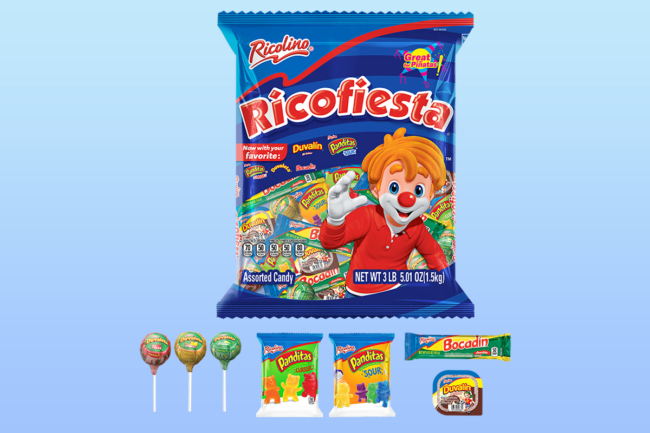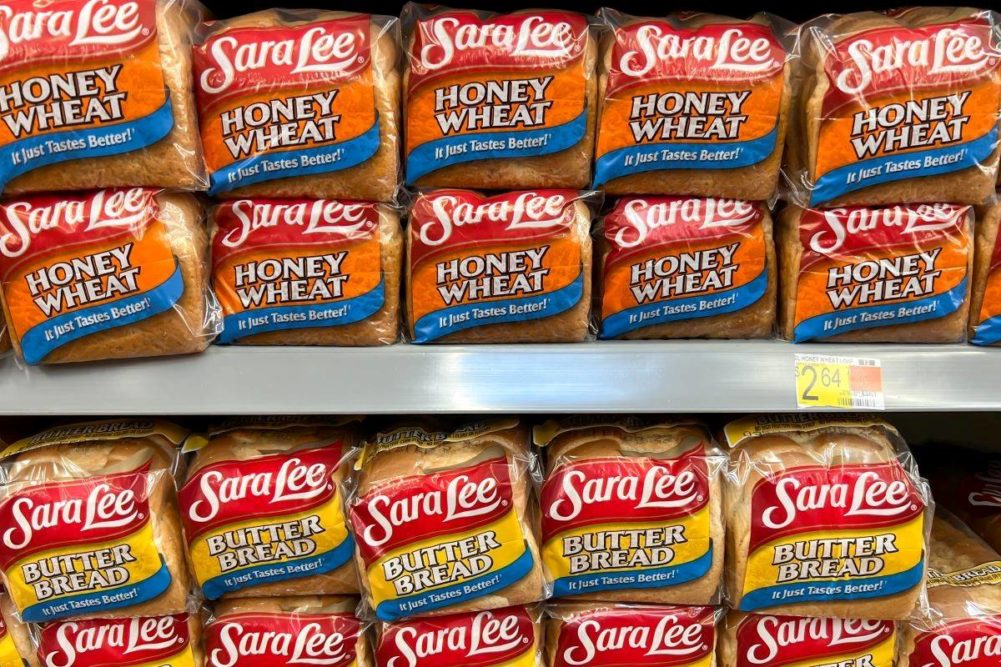MEXICO CITY — Capital expenditures by Grupo Bimbo SAB de CV could reach $2 billion in 2023, up as much as 43% from 2022 and double spending of $1 billion in 2021, company executives said. Guidance for capital spending this year and the reasons for the increase were among numerous weighty topics discussed in a Feb. 22 earnings call.
Boosted by a massive reversal of the company’s multi-employer pension plans (MEPPS) liability provision, Grupo Bimbo net income and operating income of the company’s North American business were sharply higher in 2022. The liability reversal was recorded in the fourth quarter of the year and gave Bimbo a non-cash benefit estimated at 14.4 billion pesos ($734 million).
Daniel Servitje called 2022 “a remarkable year with historic financial performance.” Record sales and EBITDA equated to 10% and 12% 10-year compounded annual growth rates, respectively, he said. He said the company achieved volume gains in all global geographic regions.
“We saw market share gains in most categories, made record Capex investments of $1.4 billion, fine-tuned our strategic focus on grain-based foods after selling Ricolino, invested in and grew our brands successfully, turned around Argentina and Brazil and we launched our sustainability strategy,” he said.
The Ricolino sale generated 15 billion pesos ($765 million).
Plans for capital spending in 2023 were shared by Diego Gaxiola, chief financial officer, as part of Bimbo’s initial financial guidance for the new year.
“We expect our Capex investments to be in the range of $1.7 billion to $2 billion,” he said. “This higher Capex is partly due to the carryover effect of 2022 and also because of the opportunities we are seeing to increase our capacity, given the demand of our products in the marketplace.”
Later in the call, Mr. Gaxiola sought to put the capital spending budget for 2023 into perspective.
“During 2021, we did for the first time in the history of the company more than $1 billion,” he said. “And then 2022, although we believe we’re going to be slightly below the plan, we ended with $1.4 billion. And as you heard on the guidance, we’re expecting a higher number (up to $2 billion) for 2023.”
The most important reason for the increased spending is to increase production capacity related to top-line growth around the world, Mr. Gaxiola said.
“We have also been a little bit more aggressive on investing on some profitability projects, that will not help the topline but will help us to be more efficient and have an expansion on our margins,” he said.
A third factor Mr. Gaxiola cited boosting the capital expenditure budget is cost inflation that has made capital projects more expensive, he said.
Mr. Servitje estimated a baseline for maintenance capital expenditures at $600 million to $700 million per year, figures that exclude projects specially aimed at increasing capacity of increasing efficiency.
Net majority income of Grupo Bimbo in 2022 was 46.9 billion pesos ($2.6 billion), nearly triple the 15.9 billion earned in 2021. In the fourth quarter, net majority income was 30.2 billion ($1.6 billion), up dramatically from 4.8 billion in the last quarter of 2021. Excluding special items, net majority income in the fourth quarter was up 7% from the year before. Net sales in 2022 were 398.7 billion pesos ($21.7 billion), up 18% from 2021. Fourth-quarter sales of 109 billion pesos ($5.9 billion) were up 15%.
Despite a difficult comparison with 2022, Grupo Bimbo expects adjusted EBITDA to grow at a high single-digit rate in 2023, with margins widening modestly, Mr. Gaxiola said.
“More specifically, we are expecting an impact on our results from inflation during the first half of the year, which will gradually lessen, and we will see tailwinds during the second half of the year,” he said. “These coupled with the operating leverage coming from the sales growth and productivity benefits from past investments in Capex and Opex, as well as a positive effect coming from the foreign exchange rate, will result in the slight margin expansion.” Source: Ricolino
Source: Ricolino
Operating income of the North American business of Grupo Bimbo in 2022 was 33.3 billion pesos ($1.8 billion), up 119% from 15.2 billion pesos in 2021. In the fourth quarter, operating income was 19.3 billion pesos ($1 billion), up dramatically from 4.4 billion in the final quarter of 2021. Sales were 205.7 billion pesos ($11.2 billion) last year, up 17%. In the fourth quarter, sales were 58 billion pesos ($3.2 billion), up 16%.
Adjusted EBITDA of the North American business was up 5% in 2022 and up 14% in the fourth quarter and excludes the effects of the MEPPS reversal.
The MEPPS liability has periodically been responsible for wide swings in Bimbo’s financial results. Bimbo explained the liability provision had been carried to “support a solution for the largest ‘critical and declining MEPP.” Bimbo said the provision is no longer needed because of expected special financing assistance in connection with the American Rescue Plan Act of 2021.
Mr. Gaxiola said even with the resolution, Bimbo will continue to have MEPP payment obligations, will be subject to some volatility and a bit more than $100 million in liability related to MEPPS. He called the figure “a fraction of what we had in the past.”
Asked for clarification, Ruben Herrera, senior vice president of global sales for Grupo Bimbo, affirmed that Bimbo will continue paying into the MEPPS but no longer faces the threat of significant major further liability beyond these payments.
“We had the possibility or actually the probability of significant fund that we belong to going insolvent,” he said. “This was a provision to protect ourselves against the liability that would flow from that insolvency that has now been solved.”
Other factors in Grupo Bimbo’s operating income gains were strong sales growth and efficiencies in the distribution network.
Still, the North American baking business experienced tighter margins in 2022 than was the case in 2021. Adjusted EBITDA of the North America business was 22.6 billion pesos ($1.2 billion) in 2022, up 5% from 21.5 billion pesos in 2021. In the fourth quarter, adjusted EBITDA was 6.4 billion pesos ($350 million), up 14%. The region’s adjusted EBITDA margins were 11% in 2022, down from 12.2% in 2021. In the final quarter, margins were 11.1%, better than margins in the first nine months of the year and down from 11.2% in the fourth quarter of 2021.
Bimbo said the tightening margins from the fourth quarter of last year were “mainly due to a higher inflationary environment, partly including commodities and labor costs.”
The company said pricing, favorable product mix and productivity benefits emanating from earlier restructuring investments partly offset the headwinds.
Dollar sales in 2022 surged 22%, attributed principally to the company’s “successful implementation of the pricing strategy across categories and channels,” Mr. Servitje said. Also boosting sales was an extra week of sales relative to 2021.
“Snacks, premium and mainstream bread and sweet baked good categories outperformed with continued solid market share performance in multiple categories,” Bimbo said. The company also benefited from an extra week of sales in 2022.
“Despite the challenging operating environment, the margin only contracted a slight 10 basis points,” Mr. Servitje said. “This reflects an outstanding effort from our teams, which were able to successfully navigate unprecedented inflation and a critical labor and operating environment and yet delivered better-than-expected results. Inflation pressures were partially offset by a favorable portfolio mix and strong investments in our brands. We will continue to innovate, invest in our brands, and remain confident, but the breadth of our portfolio position us favorably to navigate through the many macroeconomic uncertainties. Our focus remains to offset inflationary pressures through productivity, pricing, and revenue growth management strategies, while working hard to win share in our branded categories.” Fred Penny, president of BBU. Source: BBU
Fred Penny, president of BBU. Source: BBU
Fred Penny, president of BBU, characterized BBU’s volume trends in 2022 as “very good, positive generally.” Some softening was experienced in the fourth quarter. He said tonnage has weakened due to the impact of higher prices and inflation.
“The good news from our standpoint is we’ve held or grown share in almost every category that we’re in, even if the category has softened a bit,” he said.
Looking forward, Mr. Penny identified near-term challenges as well.
“We are cycling in Q1, in particular, some significant volumes from year ago when there was an Omicron, COVID spike,” he said. “So, we’ll have to see how the year plays out. But I think the important point is that our share performance is solid across most categories, either flat or up, and I think part of this is where the category goes. But I would say we’re optimistic about our ability to regain momentum to grow volume.”
Mr. Penny identified steps the company will take to reignite growth.
“One will be what I’m going to call surgical promotional activity, if needed,” he said. “And two and more importantly, is more investment in our brands, from a marketing standpoint, and innovation.”
Asked about trends in private label bread sales, Mr. Penny began by affirming the important role store brands play in the bread category as well as “in multiple food categories.” He said the trajectory of private label business has changed over the last several months.
“It was trending negative for the last couple of years,” he said. ‘It’s either now trending less negative or maybe slightly positive.”
Asked by Mr. Servitje to share a few remarks ahead of his impending retirement, Mr. Penny noted that he became president of BBU shortly after the company’s 2011 acquisition of the fresh baked foods business of Sara Lee Corp.
“With the commitment and passion of our leaders and associates, both current and former, we built an industry-leading national baking company through integration, transformation, and the growth focus,” Mr. Penny said. “I’m confident that with the current BBU leadership in place and grounded in our core beliefs of safety, diversity, equity, and belonging, and respect for the person, they will be successful growing and continuing to transform the baking industry.”
During the call, Mr. Servitje cited numerous honors received by Bimbo for corporate leadership in 2022. He particularly emphasized the company’s achievements around sustainability.
“I believe we are the most advanced food company in the world in terms of renewable electricity consumption,” he said. “We were also included for the first time in the Bloomberg 2023 Gender Equality Index and we were recognized by the Carbon Disclosure Project for our actions globally to mitigate the effects of climate change making it to the very selective A list.”






